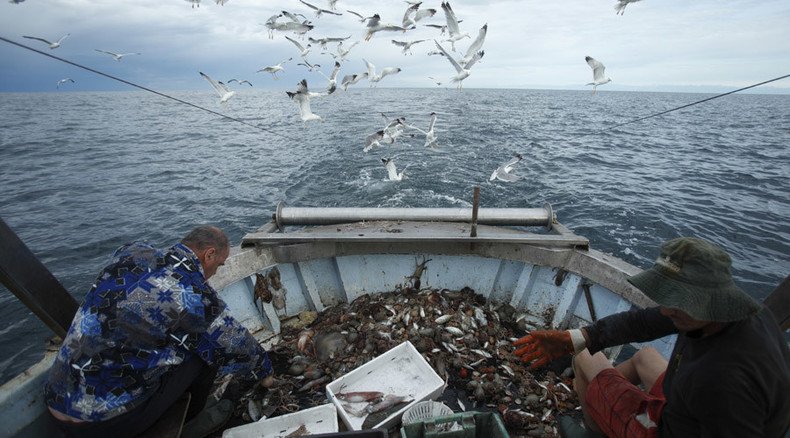Plenty of fish in the sea? Half of ocean life died out in 45 years – report

Overfishing and other similar threats have caused the number of fish and animals in the ocean to have halved since 1970 with conservation group WWF calling the situation ‘critical’.
Not only fish are dying out: The World Wide Fund for Nature (WWF) study tracked the populations of some 1,234 species, such as seals, turtles, dolphins and sharks.
“There is a massive, massive decrease in species which are critical,” said Marco Lambertini, director general of WWF International.
Common threats for global species decline: habitat loss, over fishing/hunting, and climate change.
— EWS WWF (@ews_wwf) October 20, 2014When it comes to dinner staples such as tuna or mackerel, populations have fallen by a shocking 75 percent since the seventies, according to a study by the WWF and the Zoological Society of London (ZSL).
Unfortunately all the threats are man-made. The study claims that the global fishing fleet is too big, and between $14bn and $35bn go into supporting it every year.
Other dangers include coral reefs and mangroves damaging, coastal development, pollution and climate change. The latter has a more direct impact on the ocean’s ecosystem than one might imagine, as rising temperatures increase acidity in waters.
Not all hope is lost though as later this month, governments are set to adopt a new UN sustainable development goal: to end overfishing and destructive fishing practices by 2020 and to restore stocks "in the shortest time feasible".
Marco Lambertini also pointed out that it’s important to crack down on illegal fishing. Such practice had shown positive results, he said, using the coast of Fiji as an example.
READ MORE GoPro turtle inspires people to save Great Barrier Reef in mesmerizing footage (VIDEO)
In another report on the issue the WWF maps out the steps that need to be taken in order to improve the situation: relieving fishing pressure, improving gear selectivity and fishing exploitation patterns, protecting habitats and making a wise and generous use of protected areas and no-take zones.












